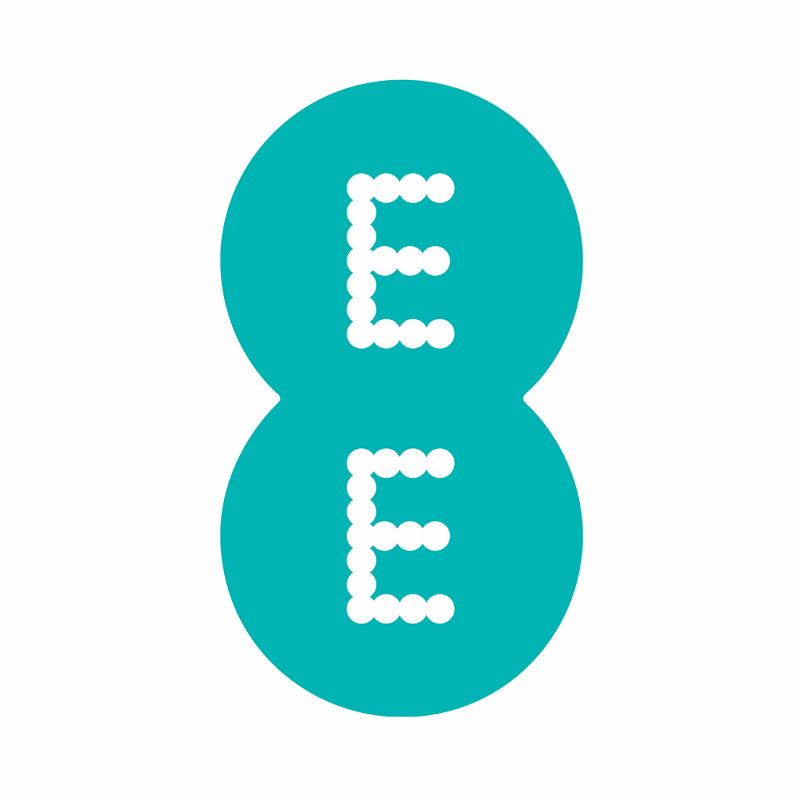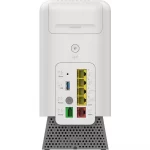2025 Editors Pick of the UK Best Home Broadband ISPs

Finding a new ISP can be like walking through a minefield. Consumers in the UK often face a bewildering choice of different broadband providers and networks, which is getting worse as a growing number of new entrants enter the market. But this guide aims to help by delivering a simplified overview of the top options.
We’ll start by reminding readers that the service performance on an ISP can vary from location to location and is affected by many different factors, such as the capacity at the exchange or the type of line itself (copper or fibre optic etc.) and its length. Problems within your home (e.g. slow WiFi, a bad configuration, home network congestion or poor wiring) can also end up being wrongfully conflated with your broadband ISP.
All of this means that choosing an ISP, even highly rated ones, will carry some risk of poor performance. Put another way, even large poorly rated providers can still deliver an excellent service, but the ratio of dissatisfied to satisfied customers will often be higher than with smaller providers (i.e. you stand a bigger chance of getting burnt, but it might be worth the risk if saving money is your goal).
In keeping with the above, we’ve put together a selection of providers, which are organised into several categories to reflect the best picks for those seeking to save money or pay extra for more quality.
The Categories
PAGE 1: Price – For the budget conscious, albeit possibly sacrificing quality.
PAGE 2: Quality – For those who will pay a bit extra to get the best service.
PAGE 3: Commendations – Alternative network ISPs that deserve praise.
We ask that readers always thoroughly investigate any ISP before joining and check our Broadband Technology page to learn about the different connectivity methods. The Awards and Special Offer categories in our news section are also useful for keeping track of industry achievements and price promotions. Finally, don’t forget to view our UK ISP Comparisons to see a price benchmark of around 200 providers.
A Quick Market Overview
At present over 98% of UK premises are within reach of a 30Mbps+ capable “superfast” broadband service, which drops to around 88% for 1000Mbps+ gigabit-capable lines (mix of full fibre FTTP and hybrid fibre coax HFC) – details. The vast majority of premises are served by ISPs that use Openreach’s (OR) network and over half (18.4m) can also access Virgin Media’s and nexfibre’s combined network (mostly in urban areas).
Openreach is an open access platform for lots of ISPs and supports several different technologies (e.g. ADSL, FTTC / SOGEA and FTTP). On the flip side, Virgin’s network (HFC DOCSIS + FTTP) is closed to other ISPs and mostly only available in urban areas, although they also sell via nexfibre’s FTTP network.
On top of that there’s a huge and rapidly growing market for alternative networks (altnet). Some of the biggest are CityFibre (c.4.5 million premises), Netomnia (2.56m) and Hyperoptic (1.9m via FTTP and FTTB). See our ‘Summary of Full Fibre Build Progress‘ for more.
Finally, switching between any of these providers should just be a matter of placing an order with the new provider under Ofcom’s new One Touch Switching (OTS) system and the rest is handled automatically, although there are still some rare cases where this migration path might not work (i.e. you may have to cancel your old service manually first and then order the new ISP as a brand-new line).
We recommend that readers check out our Summary of Consumer Rules and Laws because there are a lot of measures that are designed to protect you, such as the one for Automatic Compensation (here and here), the Broadband Speed Code of Practice (here) and End-of-Contract Notifications (here).
Price – The Lowest Cost Broadband ISPs
The UK broadband market is full of cheap deals but there are more risks involved if you opt for savings vs service quality. Cheaper ISPs may have less money to reinvest into future improvements (i.e. quality and support may suffer) and in most cases the discounts will only last for your first contract term (i.e. beware big post-contract price hikes).
Nevertheless, if you don’t mind taking a risk then the options below may suit. All of the prices include VAT and line rental (we show both post-contract prices and discount prices). Take note that if you need a brand-new line installed then the upfront fee may be larger than some of those stated below (one-off costs for this can vary up to c.£100).
On top of that we only show packages with unlimited usage and wide national availability (excluding the altnets on PAGE 3), which are the most common and easiest to compare. The following is an unordered list of ISPs (not ranked) and this year we’ll only focus on ultrafast and multi-gigabit speed packages (speeds are displayed as peak-time averages).

Package Examples
Cheapest: 132Mbps DL (20Mbps UL) – c.£24 PM (£54 post contract)
Fastest: 2000Mbps DL (200Mbps UL) – c.£60 PM (£84-£90 post contract)
Virgin’s key advantage is that their network can deliver speeds of 1000Mbps+ (1Gbps) to more than half of the UK and symmetric speeds of 2Gbps is possible in some areas. The provider has won lots of praise for their performance too and has a strong Pay TV service, as well as a decent mobile offering via O2. On top of that they’re working on a major FTTP upgrade of their network by 2028 (here), as well as plans to reach up to a further 5-7 million premises via nexfibre (here), although the latter has been delayed (here).
The provider’s customer support and billing department does, however, still attract quite a few complaints, although we have seen this side of their service improve a lot over the past year (example). On top of that Virgin’s broadband packages are not as attractive as they once were, due to rising competition – especially if you stay loyal and don’t renegotiate at the end of your term (post-contract prices can be painful and you have to look at the small print to find them).
Otherwise, VM’s contracts are now 24-month terms again (they were 18-month before) and their latest HUB 5.0 and 5X router is better than older models (here), if still not excellent; the 5X also lacks modem-mode (here). The biggest development during 2025 has been the availability expansion of their 2Gbps tier.
Pros:
• Good speeds that are widely available
• Good Pay TV bundles
• Reasonable 4G / 5G Mobile tariffs when bundled with O2 (VOLT)
• Social Tariff offered for those on state benefitsCons:
• Coverage is mostly focused on urban areas
• Post-contract prices can be very expensive if you don’t negotiate on renewal
• You have to pay a £6 premium to get symmetric upload speeds
• The Social Tariff doesn’t include an optional phone service (awkward for vulnerable users).
Package Examples
Cheapest: 73-82Mbps DL (18-82Mbps UL) – £24 PM (£28 post contract)
Fastest: 2200Mbps DL (2200Mbps UL) – £60 PM (£70-£75 post contract)
Voda remains one of the cheapest of the major broadband ISPs and they typically attract a slightly above average level of consumer complaints (here). The provider also offers FTTP broadband via both Openreach and CityFibre’s national networks, which thanks to an exclusivity agreement with the latter often gives them some of the UK’s widest full fibre coverage.
Sadly, there’s no Pay TV option from Vodafone, but they are one of the UK’s main mobile networks for 4G and 5G services and tend to delivery good performance. Existing mobile customers can also save extra money by bundling with their broadband plans.
Finally, the provider also offers some optional features at extra cost, such as 4G (mobile broadband) backup and Apple 4K TV. The provider has also now deployed IPv6 across their fixed broadband base and are one to watch in 2025/26 due to their recently completed merger with Three UK, which is expected to bring a lot of improvements (here) and new packages.
Pros:
• Price
• Good choice of 4G and 5G Mobile plans
• Fast speeds on FTTP
• Paid add-ons like 4G backup, Apple 4K TV and inclusive calling are nice options to have
• Social Tariff offered for those on state benefitsCons:
• Service quality and support could still be improved
• Long 24-month contracts only
• Have to pay a lot more to get a their latest Wi-Fi 7 router (here)
Package Examples
Cheapest: 75Mbps DL (20-75Mbps UL) – £25 PM (£43 post contract)
Fastest: 5,000Mbps DL (5,000Mbps UL) – £80 PM
Sky generally attracts a fairly good level of customer satisfaction and they’ve consistently received some of the fewest consumer complaints of all the major ISPs (here). The biggest change in 2025 has been the expansion of their network coverage to include CityFibre’s full fibre lines and a top speed of 5Gbps, which complements their existing partnership with Openreach’s national network.
On top of that Sky has one of the best Pay TV platforms in the UK and their unique twist on an O2 MVNO powered mobile service has its attractions (useful features like data rollover etc.), although their mobile service isn’t as cheap as the options offered by some of their rivals. Customers also benefit from Sky’s reasonably competitive broadband pricing and extra features, such as parental controls (website filtering etc.) and nuisance call blocking. But post-contract prices do tend to be a lot higher.
Pros:
• Good support for a major ISP
• Good Pay TV service
• Decent full fibre packages, speeds up to 5Gbps on CityFibre
• Often attracts fewer complaints than the other big ISPs
• Social Tariff offered for those on state benefitsCons:
• Post-contract prices are a bit too high
• Bundled router on slower tiers could be better
Package Examples
Cheapest: 74Mbps DL (20Mbps UL) – £29.99 PM (£36.99 post contract)
Fastest: 1600Mbps DL (115Mbps UL) – £64.99 PM (£75.99 post contract)
Communications provider EE is today part of the BT Group and they’re currently in the process of becoming the group’s “flagship brand for our consumer customers“. As part of that they’ve already broadened their horizons to offer a fairly attractive mix of broadband, TV and phone plans.
However, EE has been attracting more consumer complaints over the past year than in previous rears (here), worse even than siblings BT and Plusnet. Otherwise, there’s a good selection of packages, while most of the routers they ship are the same ones that BT use, although their fastest tiers (up to 1.6Gbps) do now benefit from the latest WiFi 7 capable Hub.
Pros:
• Reasonably priced for FTTP
• Good mobile and broadband packages
• UK based supportCons:
• Mobile plans are expensive
• No Social Tariff for broadband (only BT does this directly)
• Complaints did increase over the past year (2024)

Package Examples
Cheapest: 74Mbps DL (20Mbps UL) – £28.99 PM (£36.99 post contract)
Fastest: 900Mbps+ DL (110Mbps UL) – £40.99 PM (£57.99 post contract)
BT is both the largest ISP and also one of the more expensive providers (especially post contract) – particularly on their older connection types. But this is largely due to all of the premium extras they include (e.g. access to millions of WiFi hotspots, speed guarantees, a decent wireless router, nuisance call blocking etc.) and their fastest full fibre packages are more competitively priced than their slower tiers.
The primary reason for including BT here, aside from being a useful comparison with the others above, is thus because their ultrafast and gigabit broadband packages (FTTP) are reasonable value for money. On top of that they have a strong selection of Pay TV packages, although these days their sibling brand EE appears to be the main focus for consumer products. Customer complaints against BT are also around the industry average (here).
In addition, BT offers a number of premium HALO packages, which include extra protection if your service goes down (“Keep Connected Promise“), better support and extra mobile data at the fastest speeds. Going forward, the operator is keen to make connectivity between their mobile and fixed line broadband networks as seamless as possible.
Pros:
• Good premium extras
• Reasonably good routers
• UK based support
• Reasonable pricing on faster FTTP plans
• Decent Pay TV options
• Social Tariff offered for those on state benefitsCons:
• Post-contract pricing can be expensive, especially on older / slower packages
• Service quality can be variable
• No packages faster than 1Gbps
Take note that most of the above providers will also offer plenty of add-ons at an optional extra cost, such as anytime UK calls, mobile plans or enhanced TV bundles. In addition, providers that use Openreach’s network still have a lot of control to differentiate themselves in terms of features, network quality and performance (capacity), so don’t treat them as all the same – some will perform better than others on the same infrastructure.
Please continue on Page 2 to view the best ISPs for service quality..
Mark is a professional technology writer, IT consultant and computer engineer from Dorset (England), he also founded ISPreview in 1999 and enjoys analysing the latest telecoms and broadband developments. Find me on X (Twitter), Mastodon, Facebook, BlueSky, Threads.net and Linkedin.
- Netomnia Agree UK Broadband Merger Deal with Owners of Virgin Media O2 UPDATE2
- Virgin Media O2 See Broadband Customers Fall by 16.7k as UK FTTP Build Slows
- Customers of EE’s 1.6Gbps UK Broadband Package Suffer Sharp Speed Loss UPDATE2
- Ofcom Give Virgin Media O2 UK Green Light for Mobile Calls via Satellite
- Government Set to Restrict UK Children’s Use of Internet VPNs and Social Media
- Broadband ISP Virgin Media UK Introduce Bill Credits up to £250 for Switching
- Hyperoptic - £17.99
Avg. Speed: 33Mbps | Unlimited - Plusnet - £19.99
Avg. Speed: 74Mbps | Unlimited - Sky - £24.00
Avg. Speed: 75Mbps | Unlimited - NOW - £24.00
Avg. Speed: 67Mbps | Unlimited
















































